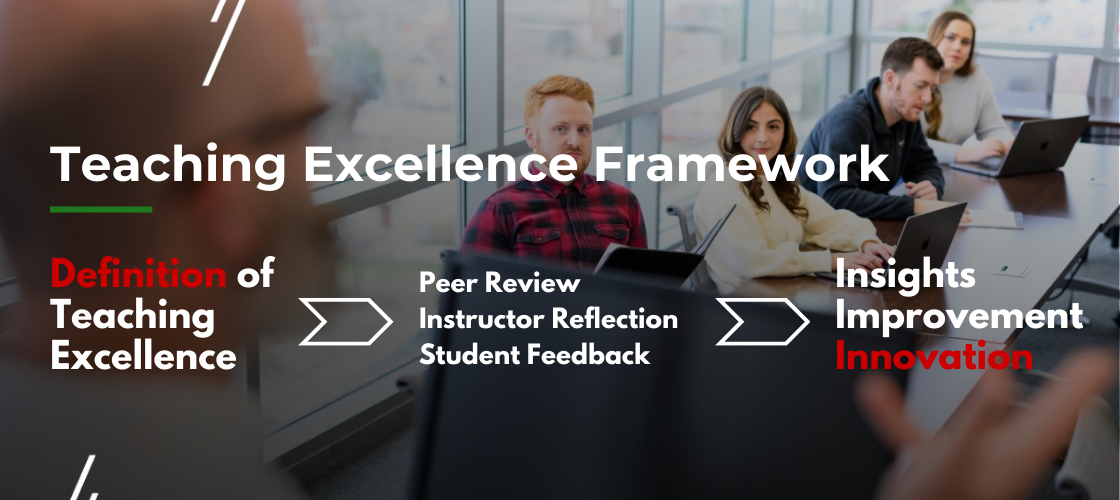At the U, we recognize the value of supporting and empowering our instructors.
At the heart of our university's mission lies a commitment to nurturing teaching excellence. We firmly believe that the ongoing professional development of instructors is crucial to fostering student success and academic achievement. The Teaching Excellence Framework serves as a guide in this endeavor, aiming to define, evaluate, advance, and celebrate teaching excellence across our campus.
Definition of Teaching Excellence FORMS & COMPONENTS Models & References
Nurturing teaching excellence
Ongoing professional development of teachers is crucial for student success.
The purpose of the teaching framework is to define, evaluate, advance, and celebrate teaching excellence.
The Martha Bradley Evans Center for Teaching Excellence (CTE) collaborated with the Teaching Excellence Working Group (TEWG) to lead this campus-wide initiative.


Definition of teaching excellence
The University of Utah defines teaching excellence across five thematic areas. These areas with descriptions provide a common framework for course-based instructional activities.
- Foster Development
- Promote Deep Engagement
- Incorporate Promising Teaching Practices
- Utilize Assessment Practices
- Pursue Ongoing Instructional Improvement
Components of the framework
The Teaching Excellence & Development Framework encourages the use of at least three sources of evidence for teaching excellence.
CTE will provide materials, resources, and tools to support the collection and interpretation of data from all three sources.
- Instructor self-reflection
- Peer review of teaching
- Student course feedback


Building a unified approach
The Teaching Excellence & Development Framework is adaptable to diverse disciplines and centrally supported for cohesion and efficacy.
We recognize the need to move beyond limited sources, such as student feedback, for faculty evaluation and development.
In alignment with peer institutions, we've created a unified framework for instructional assessment and development.

